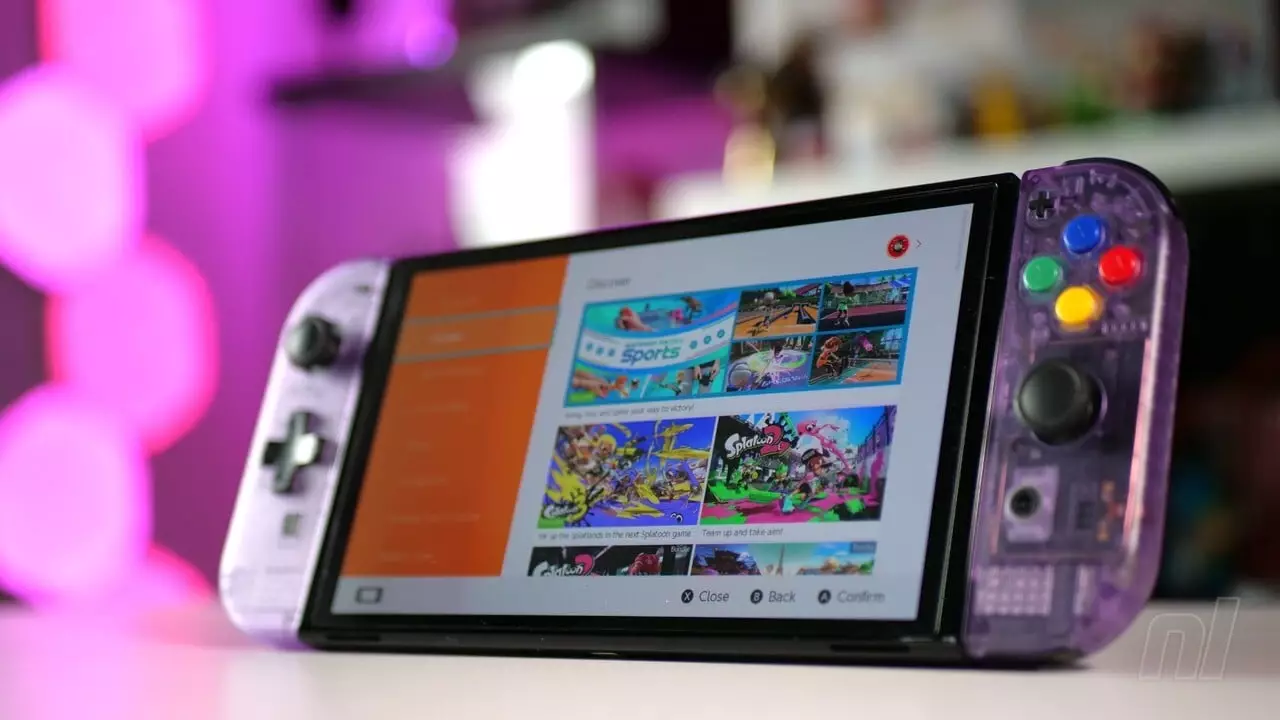As of 2025, the Nintendo Switch eShop represents a chaotic marketplace, one that developers and players alike have voiced concerns about. The platform is not only plagued by sluggish performance, but it is also overwhelmed with an avalanche of low-quality games that can be likened to digital noise. While players struggle to find the hidden gems within this overwhelming sea of offerings, game developers face a set of unique challenges that impact their ability to succeed. Recent insights shared by developers reveal the grim realities of navigating this digital storefront.
In a recent feature by IGN, several developers offered a candid assessment of their experiences on the eShop. A recurring theme among these conversations is the ease with which unethical practices can slip through the cracks. One anonymous developer expressed discontent, revealing a striking observation: “Nintendo is probably the easiest to scam.” This sentiment highlights a troubling issue where developers can publish games that grossly misrepresent themselves, deceiving customers in the process. Without stringent oversight, once a game is approved, a developer could perhaps release a title as nonsensical as “Fart Fart Boobie Fart: The Game” without fear of immediate retribution.
This troubling landscape is characterized by a “forgiveness over permission” mindset, where developers are often not held accountable until they are already knee-deep in questionable practices. It raises critical questions: Why does the eShop allow such an easy entry for dubious projects? And what are the implications for players who rely on the platform for quality games? While market entry is ostensibly an open door, it is precisely this openness that can lead to illicit exploitation and ultimately frustrate gamers.
Interestingly, the consequences for those who do get caught in these acts of deception tend to be minimal. According to insider reports, the punishments are often akin to “a tap on the wrist,” with little incentive for developers to maintain integrity. This troubling dynamic not only affects the players who are misled, but it also complicates the development landscape for honest creators who seek to release quality content but face a marketplace filled with duds.
On the flip side, developers also voiced frustrations over the arbitrary nature of Nintendo’s approval processes. The sheer unpredictability of whether a game would be accepted or rejected with little to no explanation adds another layer of complexity to the already challenging path of game development. This inconsistency creates a sense of unease and can deter game developers from even attempting to introduce innovative or niche offerings.
While similar grievances have been aired regarding Sony and Valve’s platforms, developers maintain a particularly grim outlook toward Nintendo. One developer remarked on the “logic-defying” quality of the eShop’s operational model, contrasting it with the more user-friendly approaches seen in other marketplaces. They expressed hope that any future iterations—perhaps the anticipated Switch 2—might bring improvements but remained skeptical based on historical evidence of Nintendo’s management of their digital storefronts.
Interestingly, amidst these debates about the shortcomings of the eShop, there have been efforts to create alternatives. One noteworthy initiative is the “Better eShop,” which aims to enhance game discovery and categorize offerings more effectively. Such initiatives show promise and could provide a lifeline for players seeking more organized experiences beyond the conventional constraints of the eShop.
Having examined the state of the Switch eShop, it’s clear that both consumers and developers are caught in a web of challenges. The frustrations highlighted by developers reflect a broader issue of accountability and quality assurance in digital marketplaces. The question remains: How can Nintendo go about reforming its eShop to create a more transparent, enjoyable, and fair space for both developers and gamers?
While developers continue to grapple with the clunky and crowded environment of the Switch eShop, it is essential for both industry stakeholders and consumers to advocate for change. The time has come for a serious reevaluation of how digital storefronts operate, ensuring that they foster creativity, integrity, and ultimately, customer satisfaction. With this critical foundation, the future of gaming on platforms like the Switch can begin to shift toward a more promising horizon.


Leave a Reply